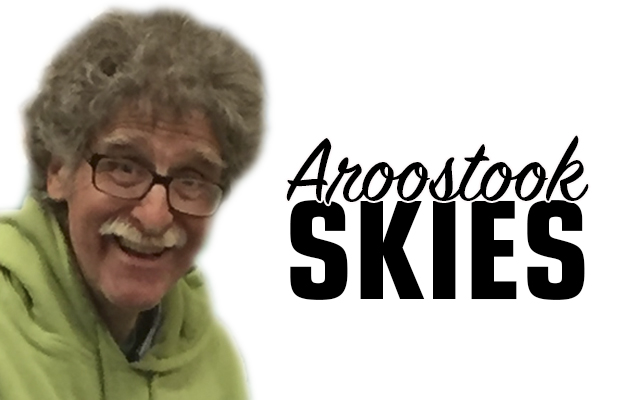June 6, 1968 — I awoke in highest anticipation of the end of the school year. At 12 years old, my body and mind had begun to change. New feelings, new sensations, new desires, physically and mentally, began to become obvious — sometimes strange, sometimes ominous, sometimes wonderful.
In Chicago, the arrival of spring always kindled a kind of longing, an aching awakening of deeper instincts. The fragrance and odor of blossoming trees and swelling leaves excited my inner life. I would approach the slim lengthy bedroom windows with tangible desire. All my childhood strength and awareness seemed to enter a new phase and I welcomed this new confidence, this new awakening.
And the sky, too, seemed inviting. I always found time to gaze, day or night. During the course of sixth grade, my teacher, Mr. Martin, had flamed my very real thirst for the astronomical. We had studied a rudimentary survey of the universe. The transmission of that knowledge, as young as I received it, filled me with a kind of electric excitement and a hunger for possibilities. Almost 60 years old now, I still believe that the small star party that teacher had coordinated in the fall of 1967 stands forever as one of the most fulfilling experiences of what could be.
NASA had grown and expanded as well. President Kennedy had proclaimed our lunar landing goal within the decade, and the series of Mercury and Gemini spaceflights had galvanized the public’s support for space adventure as well as national ambition and will. Newspapers and especially television brought the message home — literally into the home and living rooms. America flexed its presence into all aspects of our lives. Growth and motorized movement and appliances were tools and techniques of the new realities.
The dark side of the new realities existed too. They hung about ominously and threatened like dark storm clouds on humid days and thoughts from childhood. The Civil Rights movement had entered into the cultural vocabulary and had exposed gaps in the “land of the free and the home of the brave.” The advent of the nuclear age had left, as President Kennedy phrased it, that “every man, woman, and child lives under a nuclear sword of Damocles, hanging by the slenderest of threads, capable of being cut at any moment by accident, or miscalculation or by madness.” Finally, the war in Vietnam had torn apart the tranquility of a prosperous and great nation into a backdrop of discord, division, and protest.
For American children, especially, 1968 would prove incomprehensible, chaotic, and traumatic. And yet older children begin to flex their feelings collectively. All the hopes and dreams which new feelings offer would blend like living colors to bring new identity. Politicians too came under the spell, and the nation produced two candidates who blossomed like new flowers in the electoral language of the times.
Both Eugene McCarthy and Robert Kennedy attempted to utilize the new power to challenge the old. It was novel, daring, and ultimately dangerous. It cost one man his life and sent the other into the margins of the American political universe. When I awoke on June 6 to learn by TV of the assassination of Senator Kennedy, a terrible sense of loss silenced a zone of feeling within me — and likely, many others.
And we children went on, forward into adulthood either permitting the promises and dreams to wither and die unnourished or to turn our backs on the awakening — to conform to new times and new voices. The fear of unfulfilled feeling caused many to withdraw from wonder and mystery and boldness as a national attitude.
What remains of those moments? The sky still holds the same stars of early summer, 1968 when dreams pushed into waking moments only to be cruelly cut down. But dreaming continues. And the stars of summer still shine. Go out and “listen” to the voices of steady Saturn shining like a golden dot in low southern skies. Or crane upwards to see the Big Dipper perched near the zenith. And surely the Summer Triangle stars of Vega, Deneb, and Altair may draw your sky eye. Remote camp get-aways reveal the Milky Way in its entire splendor. Keep your binoculars and telescopes near. Trace the Moon and its phases clear. And above all, teach your children well.
Larry Berz of Caribou is director of Easton’s Francis Malcolm Planetarium and astronomy instructor at the Maine School of Science and Mathematics. Call 207 488-5451, The Francis Malcolm Institute for more information.
Presque Isle, ME
48
Clouds
Houlton, ME
48
Clouds
Caribou, ME
49
Clouds
Fort Kent, ME
47
Clouds
Change Location
- Presque Isle
- Houlton
- Caribou
- Fort Kent
© 2024 Bangor Publishing Company.








